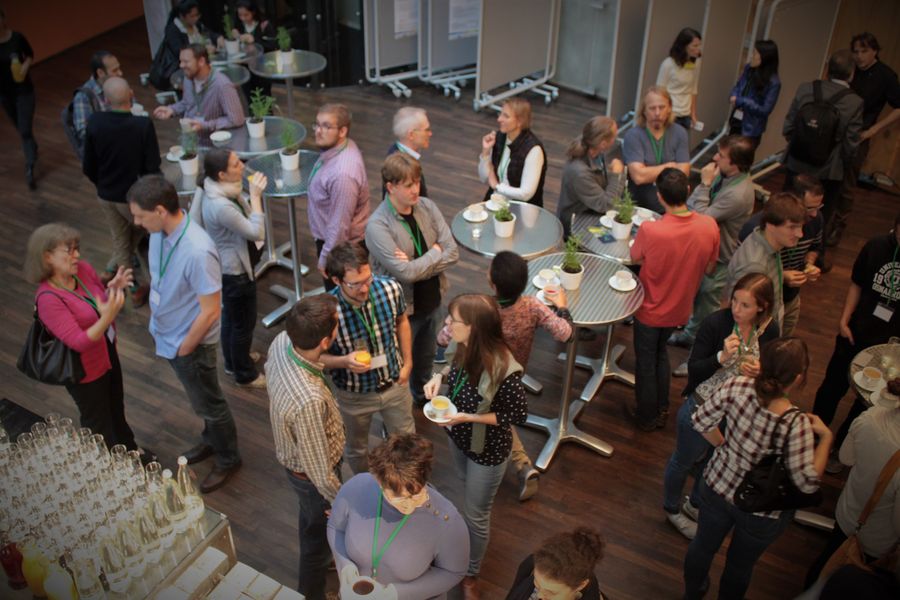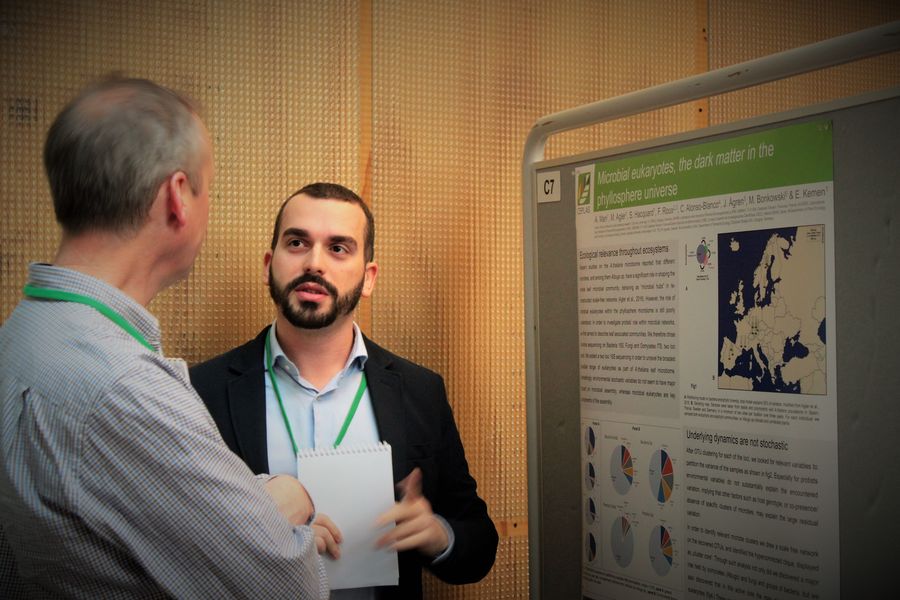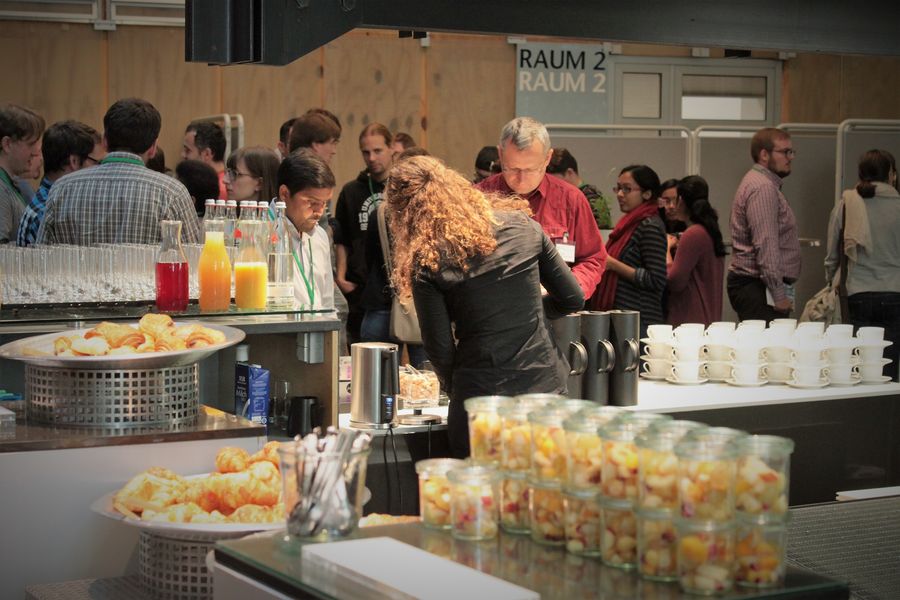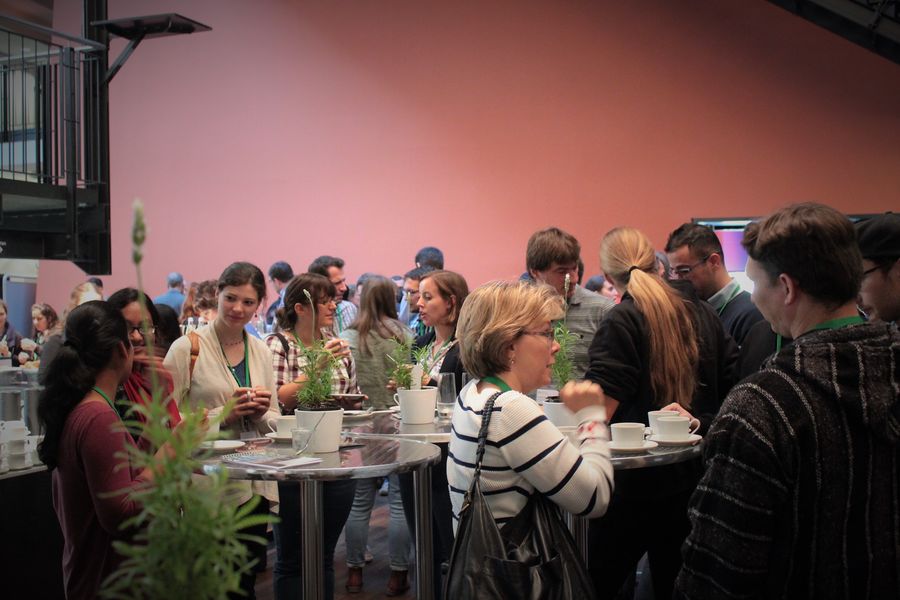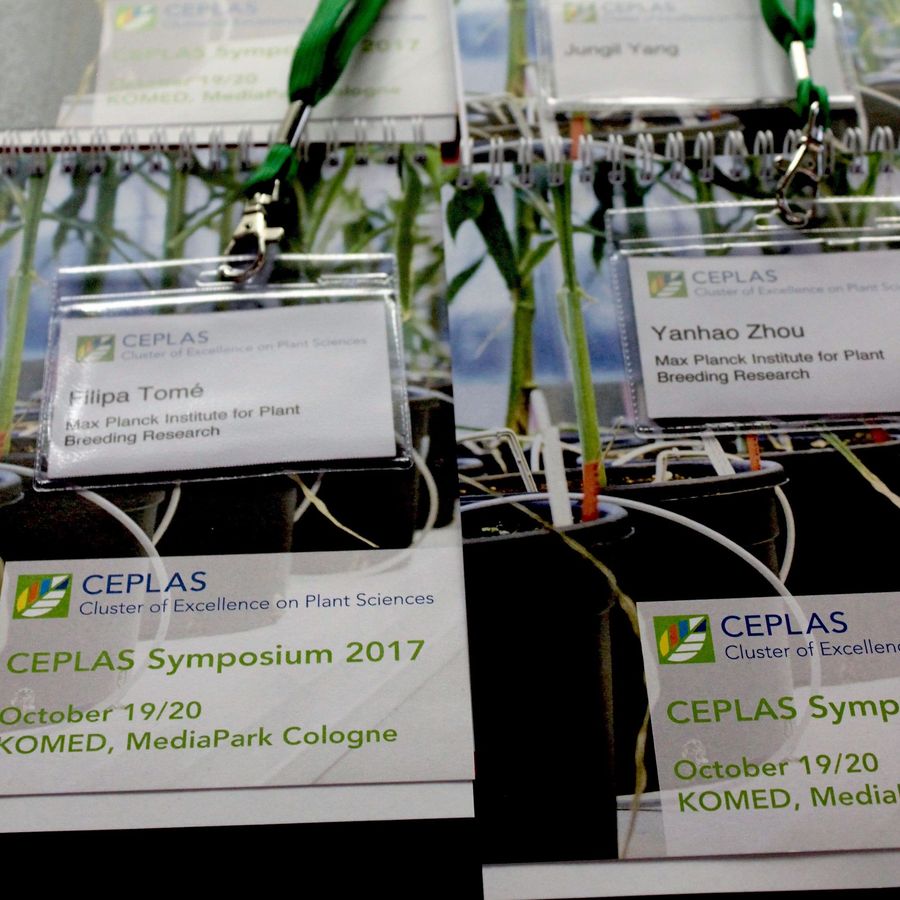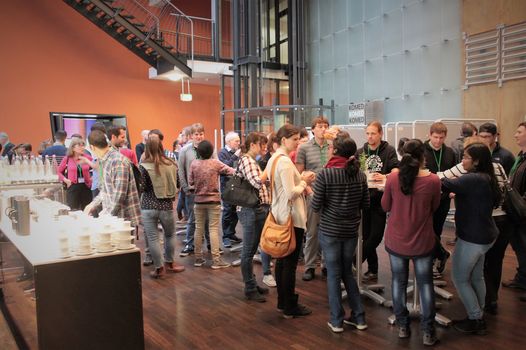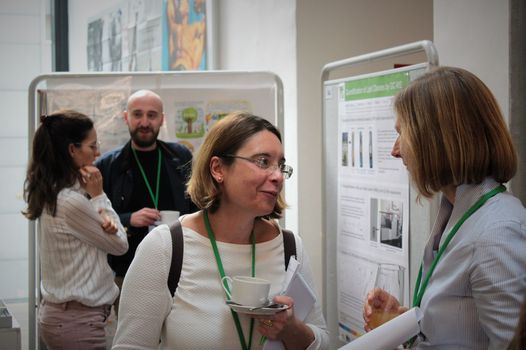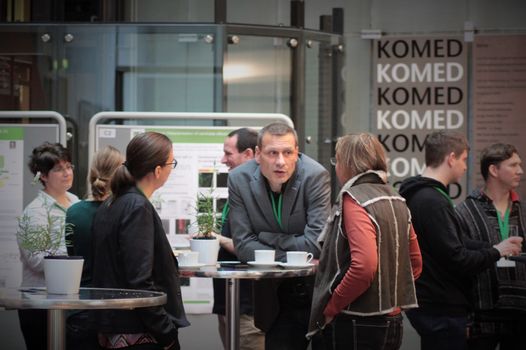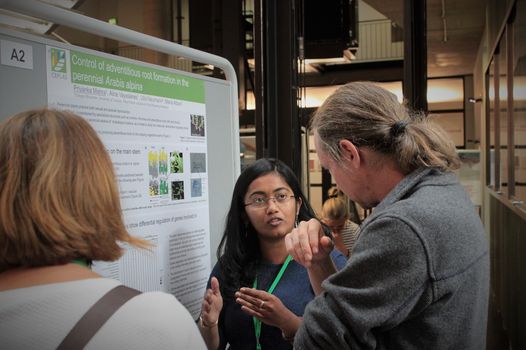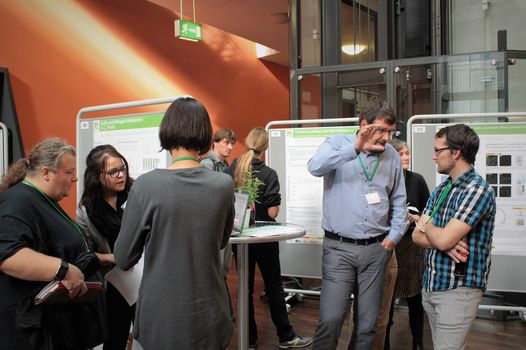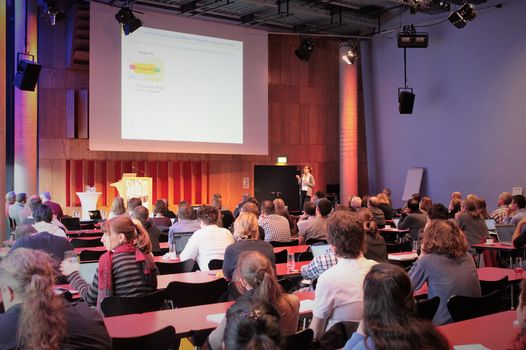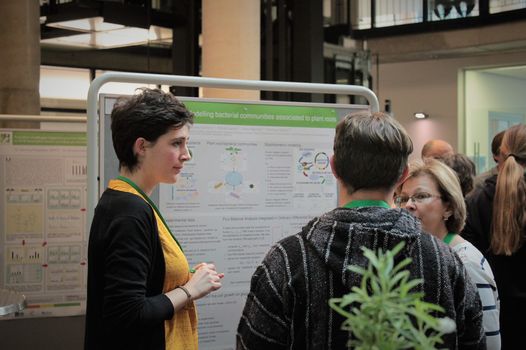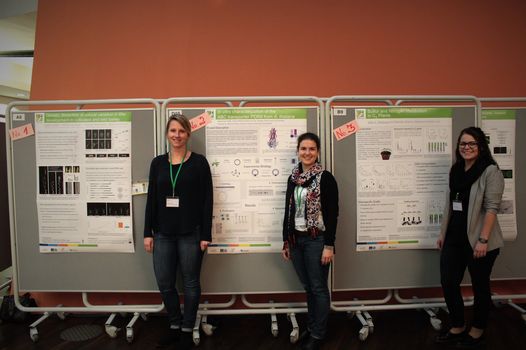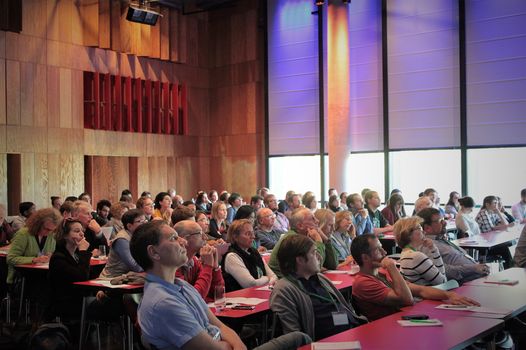Impressions from CEPLAS Symposium 2017
On October 19/20, the combined CEPLAS Symposium and Young Researcher Retreat event took place in Cologne Mediapark. Several members from the Scientific Advisory Board participated to get an overview about latest research activities of the cluster and to give feedback regarding the cluster activities and the proposal for a new cluster.
On day one, each research area coordinator gave an overview about recent research activities, followed by several elevator pitches from early career researchers to make the audience curious about their posters. Posters were highly frequented during poster session and everybody was allowed to vote for the best poster. The winners are: 1. <link _blank internal-link internal link in current>Agatha Walla, 2. <link _blank internal-link internal link in current>Katharina Gräfe, 3. <link _blank internal-link internal link in current>Silke Weckopp.
Before the joint dinner, Prof. Dr. Bernd Müller-Röber from the University of Potsdam gave a keynote about the regulation of complex cellular network in leaves for senescence and stress tolerance.
On day two, one specific research project from each research area (RA) was highlighted. <link _blank internal-link internal link in current>Jun.-Prof. Maria Albani (RA A) gave insights into the induction of flowering in perennial plants. Then, <link _blank internal-link internal link in current>Prof. Georg Groth (RA B) presented an approach to control weeds (which are often C4 plants) using specific inhibitors, which only affect C4 plants but not C3 plants (many crops are C3 plants). After coffee break, two former members of the <link _blank internal-link internal link in current>CEPLAS postdoc programme showed highlights from <link _blank internal-link internal link in current>RA C respectively <link _blank internal-link internal link in current>RA D. Dr. Juliana Almario presented a <link https: www.ceplas.eu en about-us news news-detail how-do-plants-ensure-adequate-phosphorus-nutrition-in-phosphorus-impoverished-soils _blank external-link-new-window internal link in current>joint publication from several CEPLAS authors, who investigated how non-mycorrhizal plants, e.g. Arabis alpina, can facilitate phosphor uptake. Dr. Anita Loeschcke presented the advantages and challenges using synthetic microbes for the production of secondary metabolites.
Then, a keynote lecture was given by Prof. Dr. Stefan Jansson (Umeå University, Sweden), who analyses natural variation in aspen. Furthermore, Jansson shared his experience using <link http: www.teknat.umu.se english about-the-faculty news newsdetailpage umea-researcher-served-a-world-first----crispr-meal.cid272955 _blank external-link-new-window internal link in current>CRISPR-Cas9 genome-edited plants for preparing meals. In 2015, the Swedish Board of Agriculture interpreted that plants modified by CRISPR-Cas9 are not classified as GMOs.
As a closing of the CEPLAS Symposium the focus switched from basic research towards application. Dr. Isabel Vercauteren, CEO from the start-up Aphea.Bio gave personal insights about the different steps and phases of founding a company. Aphea.Bio just started in July 2017 and their business focus is on the production of next generation agricultural biological, using synthetic microbial communities.
Overall, besides many interesting talks the combined event gave as well a lot of time for scientific exchange and networking. Several CEPLAS alumni joined the CEPLAS Symposium and thereby caught up with former lab mates and friends.

